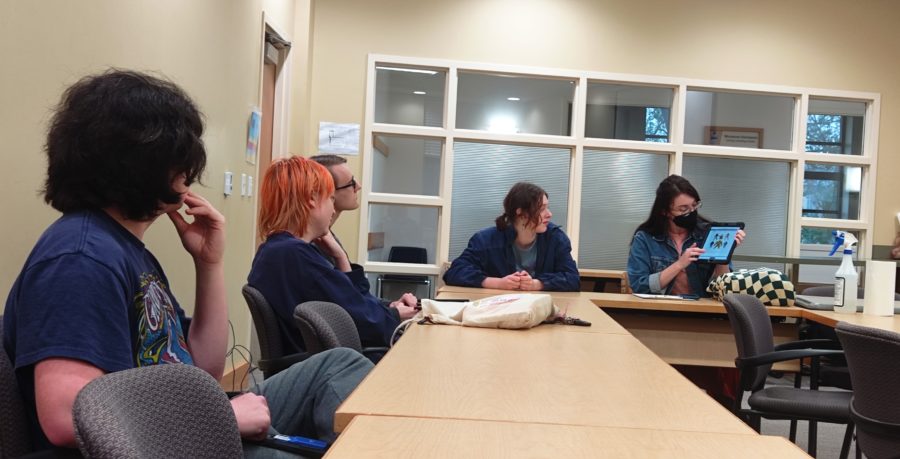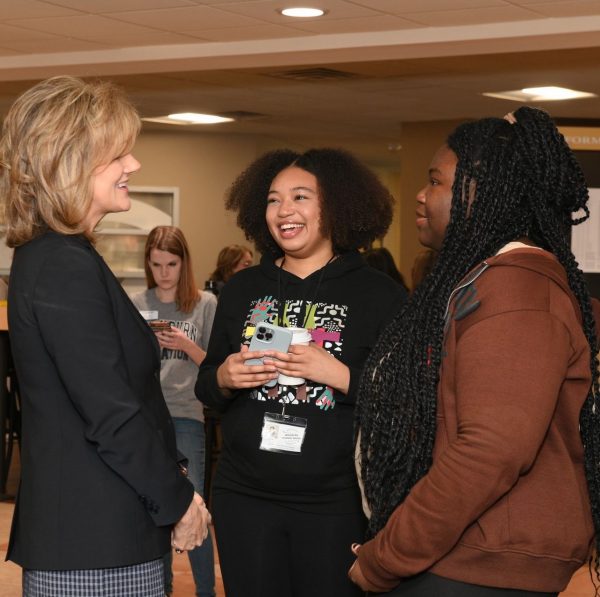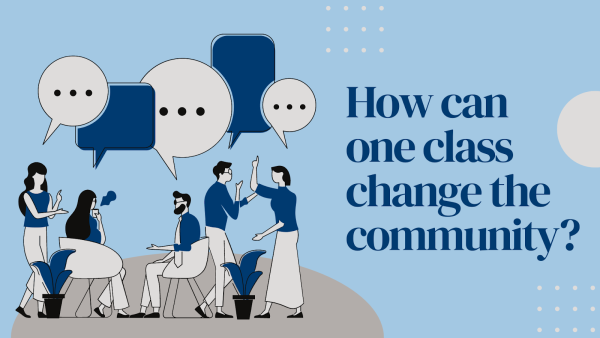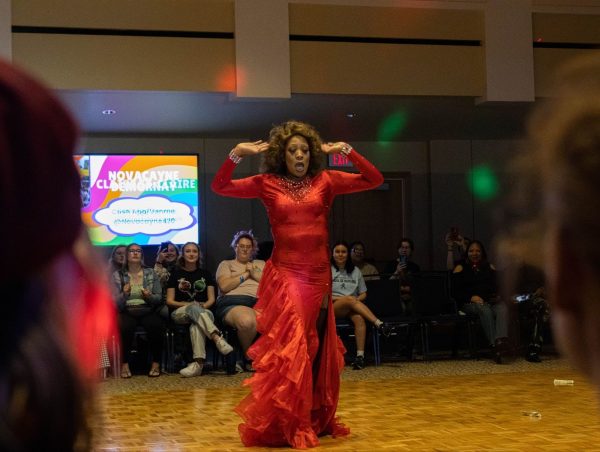URGE promotes community involvement in reproductive health and gender equity
URGE is an organization led by students, to support gender equality and reproductive rights. On April 21, 2023, the organization discussed issues of reproductive health, draft plans of distributing Plan B on campus, menstrual equity and more.
Unite for Reproductive and Gender Equity held a meeting on April 21, 2023. It was an important gathering where several significant issues such as gender equality and reproductive health were covered. The meeting had been planned by Chloe Chaffin, a junior majoring in political science and president of URGE. Sara Stepp, an academic curator of Mulvane Art Museum was also invited in the meeting as a guest and the meeting was attended by multiple students.
Stepp aims to organize an exhibit that examines gender identity. She hopes to accomplish this by using various museum objects that extend and enhance the themes of gender identity and sexual expression. The exhibition will be presented from the final week of June until the end of August. Stepp will choose 10 items and seek suggestions regarding gender identity issues from students. Visitors may submit two-or-three-word responses to the specified piece of art.
The members of URGE aim to utilize the essential Checkpoint app to reflect on the year and plan the upcoming elections for the executive team. The members additionally discussed how graduating members might impact the amount of participation in club activities. Stepp guided the discussion and offered her insights on the subject matter.
The topic of discussion throughout the meeting addressed issues related to access and cost of Plan B, a tablet to avoid pregnancy. The conversation among attendees accepted the obstacles that some people experience when trying to get Plan B within the specified 72-hour time frame such as lack of easy access, higher cost and transportation. One of the solutions that came up was installing vending machines on campus that sell Plan B, bandages, condoms and other products. The members discussed a draft of a plan where large amounts of Plan B would be purchased through Student Health Services with limiting the costs to $8 per pill. So, implementing Plan B vending machines on campus would be an instant and affordable solution to access them for those who need it.
The issue with creating a specific vending machine was the cost of installation in buildings. The difficulty of fitting products into dispensers and the potential risk of product expiration were two of the biggest issues brought up during the discussion. The participants proposed a range of options including educating themselves on reproductive statutes, getting in touch with local authorities and putting extra tags on images and articles to raise awareness.
They suggested setting up an important purchase for Plan B and using resources for promoting its availability. They also remarked about how Bods Feeding Bods might be a great ally in the future.
The next topic discussed was the distribution of 1,000 condoms and the possibility of condom donation as well as pregnancy and ovulation testing. If they can find a way, the group could additionally distribute many condoms that they have gathered from Student Health Services and from stores.
During the discussion Chaffin emphasized that establishing support from the community is vital for bringing real change in these areas. She said that increased levels of public confidence at the grassroot level can bring about the biggest change.
“Individuals ought to talk to us if they want to find out more, get well-informed, or have concerns regarding Kansas’s reproductive policy. We would be more than pleased to connect them with appropriate individuals and offer them the information they need. People can help make an important impact on issues like gender equity and reproductive rights by being engaged and being taught,” Chaffin said.
Logan Michael, a junior majoring in accounting and URGE meeting attendee, said that being an involved and responsible member of society requires remaining informed and aware of current events. He said that it’s simple to become concerned with our issues and ignore the bigger problems impacting the communities we live in and the world.
“Sharing information with others, providing a donation to a relevant cause, or standing up at a local gathering or meeting are a variety of simple gestures that I think can make a big difference. We may all contribute to the development of a world that is more just and fair by being aware and using whatever roles we are capable of,” Michael said.
Students also addressed menstrual equity in schools during the meeting. Participants remarked on how crucial it is to provide students with free period supplies, particularly those who come from low-income homes and may not have access to them. The group acknowledged the challenges involved in funding such attempts and potential school opposition. However, they also recognized the worth of community assistance and engagement in the fight for menstruation equity in classrooms.
Chaffin also explained that theological consequences of abortion and religious trauma will be a topic for one of the scheduled events and meetings. The group additionally expressed their desire to arrange events for volunteers for the first part of the summer.
The meeting placed a considerable value on the importance of community support and participation in order to implement long-term improvements in these areas. They talked about a variety of major problems such as period equity in schools, reproductive health, and gender equity and inspired students to utilize their voices and actions to change the world as a whole.
Edited by Cee Spiller and Aja Carter
Your donation will support the student journalists of Washburn University. Your contribution will allow us to purchase equipment and cover our annual website hosting costs.








